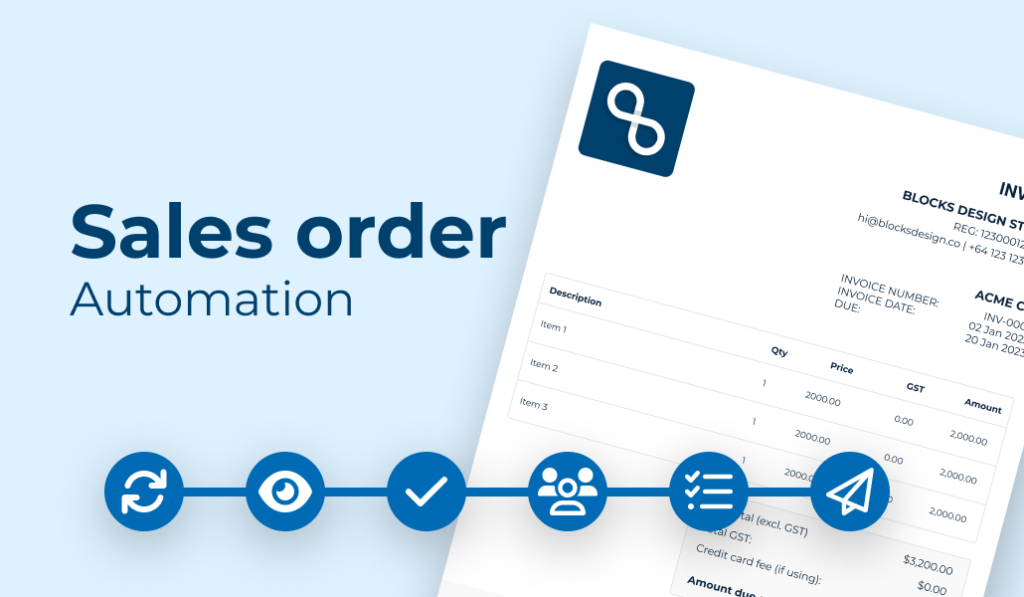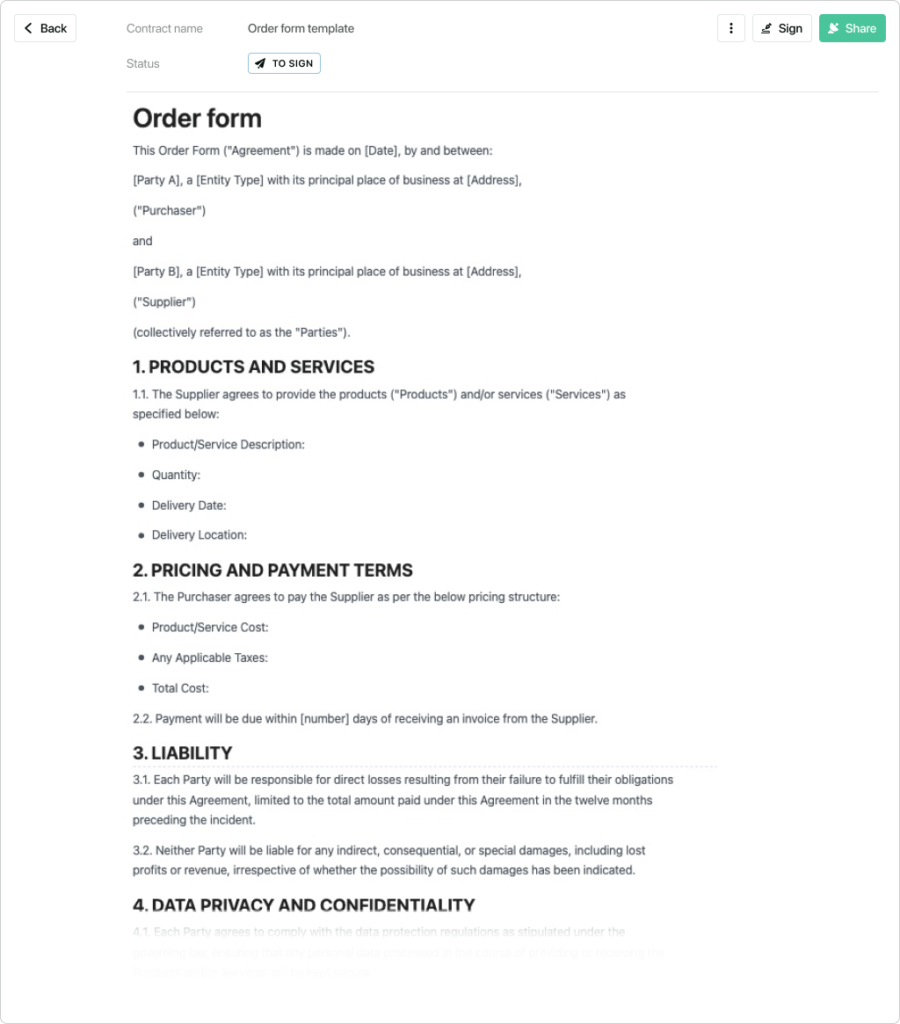Post map
ToggleIf drafting an order isn’t a familiar habit for you, or you find it challenging to find the right way to do it, don’t worry. In today’s article, Optimal Fb will walk you through various types of orders, importance of sales order, and how to create the most suitable one for you and your customers.
What is a sales order?
An order is a detailed document about the purchase order and the terms of the transaction. Typically, it’s created by the seller after they receive an order from a customer. In cases that aren’t direct sales transactions, the order is generated after the customer agrees to purchase a product. The information in an order usually includes details about the customer, product specifics, pricing, and shipping details. Since it’s not a binding contract, either party can adjust the order details after the sales transaction is completed. When carefully drafted, an order allows companies to confirm the accuracy of the transaction before shipping. After completing the sales transaction, they provide a transaction record to the buyer.
Importance of sales order
Order documents are not just a part of the sales process and order fulfillment but also offer many other significant benefits:
Increased efficiency: With sales information consolidated in one place, order processing becomes considerably faster. This convenience not only saves you time but also enhances the accuracy and efficiency of work. You can easily track the status of orders and ensure they are delivered on time and accurately. Furthermore, integrating orders into financial processes helps manage cash flow and payments more efficiently, reducing financial risks and fostering sustainable growth opportunities.
More accurate orders: Using order documents helps eliminate or minimize errors in the order processing. Accurate information in orders is key to avoiding unwanted mistakes, thereby boosting customer satisfaction and creating a professional and efficient work environment. Automating the process also ensures that all information is processed accurately and promptly.
Better inventory visibility: Order documents help you track inventory status in a more detailed and timely manner. This helps you predict and prepare for upcoming orders more easily and accurately, avoiding shortages or delivery delays.
Improved customer experience: Creating a smooth and accurate order fulfillment process with order documentation enhances the customer experience. Accuracy and professionalism in order processing create a positive impression with customers and increase the chances of them coming back and continuing to use your product or service.

Learn about order types
There are four different types of sales orders, each suitable for specific situations as follows:
Cash: This is the simplest and least detailed type of order. There’s no related receivable, just cash payment. After placing an order, customers pay and the order is shipped. Sometimes, customers might receive and pay for the order right at that moment. Example: a customer orders a mattress online, goes to the store to pay, and receives the mattress.
Rush: When customers need their orders faster than the usual processing time, you can use this type of order. The major difference from cash orders is that customers pay after the order is fulfilled. Rush orders are usually completed on the same day they are placed.
Scheduled agreement: Similar to regular orders, scheduled agreements provide detailed information about order fulfillment, including delivery times and specific quantities for each item sold. This is often the choice for more complex orders requiring careful planning.
Third-Party: Small businesses often use this type when they need to use a third party to handle and ship products. After creating this order, the supplier continues to process and fulfill it. This helps streamline the process and reduces the burden on the business in fulfilling orders.
Contents of the order form
In general, an order should include the following information:
- Information about the selling company includes name and address.
- Buyer contact information, including name, address, phone number, and email address.
- Order date and estimated shipping and/or delivery date.
- Detailed product information, including name, quantity, and description.
- Product price (before tax) and any other fees.
- Taxes and other fees may apply.
- The terms and conditions of the transaction, are typically drawn up by the selling company’s legal team.
- Signature of both buyer and seller, to confirm agreement and commitment.
- Any other information necessary or relevant to the particular transaction.
In the article on Optimal FB, we have shared the most accurate detailed information. We hope that our content can help you learn about concepts and types of orders and understand the importance of orders effectively.

Contact Info
Information about “Importance of sales order” hopes to provide you with additional necessary knowledge. At optimal FB, there is a team of highly qualified and experienced staff and experts who will provide agency ad accounts facebook as well as support when you run Facebook ads. Contact us via phone number: +84 564 104 104.
Frequently asked questions
Although purchase orders are an important tool in managing sales transactions, there are limitations to keep in mind. One of the main limitations is that the manual process can be time-consuming and labor-intensive, especially when a large number of orders need to be processed. Additionally, sending and processing orders by transmitting paper documents can cause delays in the process, especially in business environments that require flexibility and speed. Furthermore, maintaining and managing paper-based order records can cause complexity and difficulty in finding information when needed. For businesses that operate on a large scale and need to process a series of orders, using order management software or automation systems can be a solution to minimize these limitations.
When creating an order, there are some important things to consider to ensure the sales process runs smoothly and efficiently. First, make sure that the order contains complete information about the product, including name, description, and specific quantity. Next, the contact information of both the buyer and the seller needs to be clearly stated for easy communication and confirmation of the transaction. Additionally, clearly stating the terms and conditions of the transaction will help avoid misunderstandings and disputes later. Finally, thoroughly checking and ensuring the accuracy of information before submitting an order is essential to avoid unnecessary errors and confusion.


